We never thought about eating the chickens we kept. For one thing, we were not adept at killing them, and we weren’t all that sure how to clean them properly. Eggs are enough, we said.
Once in a while, Ali would take a few chickens over to the neighbors to kill and clean and he’d leave some for them. I was never privy to these sessions, and always felt a bit sad about cooking them. It made no sense, because logically they should have been the birds I was the happiest to eat– being good, healthy clean-living, bug-eating birds — but they weren’t, somehow.
Our flock grew, and we started to incubate eggs, so it grew more, and faster. About a month ago, we found ourselves with a coop that was suffering from an overabundance of roosters (things get pretty tense when there are too many guys in the coop and not enough gals to go around). Bob, our first rooster, was showing his age after five years with us (and he was a grown up when our friends from Sundance Camp brought him up to us with a five hen harem to populate our first chicken coop) — he had stopped crowing altogether and his tail was getting raggedy. It was time to bid Bob a fond farewell, move a younger rooster into his place and relieve our other coop of its overpopulation problem.
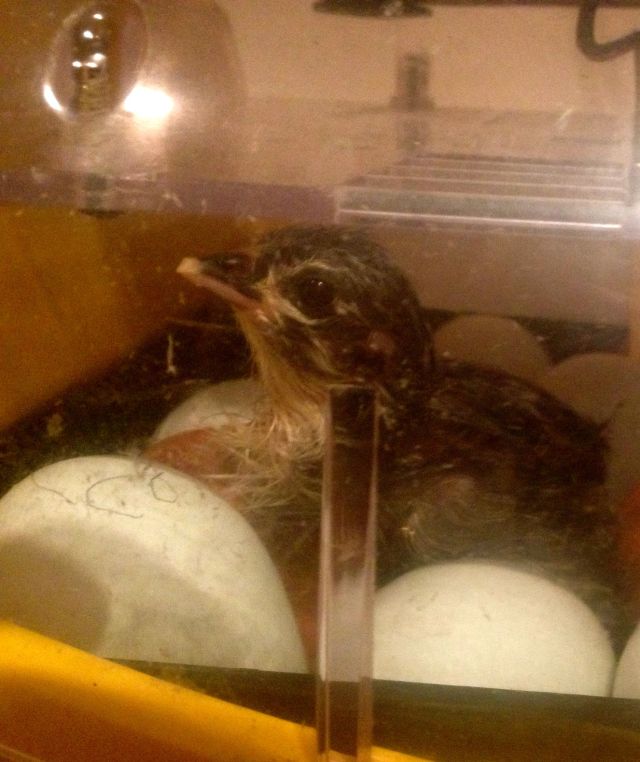
Ali said he would do the actual dispatch, a great relief to me because I lack the decisiveness needed to do the job quickly and well. We would pluck and dress the birds together. I looked through a few books for pointers, and Ali told me what he could remember from doing it with the neighbors.
Many things loom large in my imagination before I do them and then shrink to size when it comes down to it, and I am pleased to say that this was one of those things. I learned that plucking a bird while it is still warm really is very easy, that even the biggest feathers come out with a little attention. The wings are the hardest bit, because flight feathers are so big. And once the initial fidgeting is over — there is a reason we have sayings about chickens with their heads cut off (though that’s not how we kill ours) — it is quite peaceful to be with the bird.
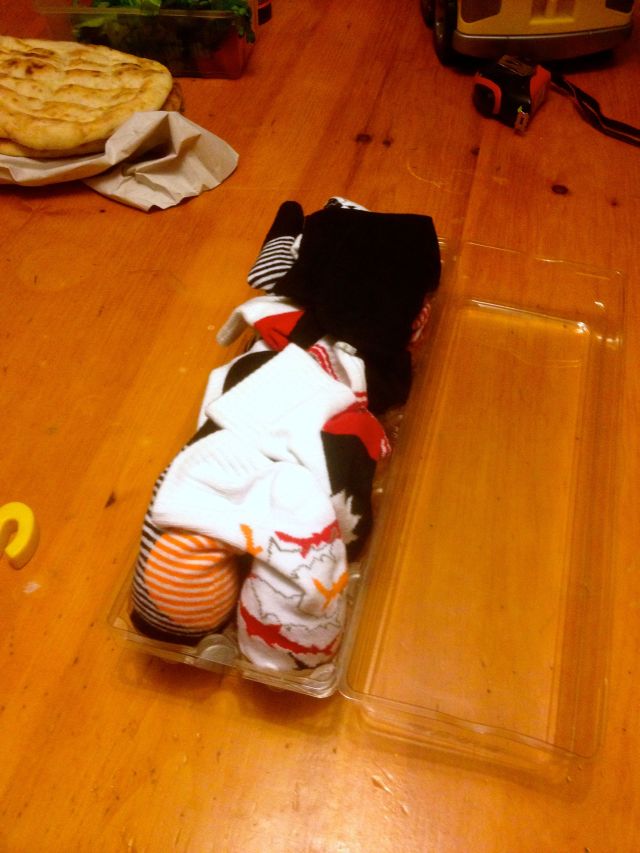
I dressed the first rooster on my own and I made a few mistakes, but it wasn’t so bad. We did it together after that and each time we learned a little something else. It’s a little puzzle, figuring out how everything is connected.
And one thing that really surprised me about the whole thing was how clean the birds smell. I have spent a lot of hours cleaning coops and whatnot, and that can be smelly work. Chicken manure is amazing for the garden, but it is not always super nice to interact with. But the birds themselves smell so sweet and clean while we are plucking and dressing them. You could kiss their skin; I’ve never felt that way about a supermarket chicken.
This was my first time eating young birds, since in the past we had only culled older hens, so I was surprised at how tender they were. They taste great, too. They are far smaller than the birds we buy in the shops — they look like streamlined models of the same animal. And perhaps because of their age (they are about 3 or 4 months old when we dispatch them), their bones are so white.
Special birds deserve special treatment. I read this post at Chica Andaluza’s blog with an amazing recipe for chicken with saffron, hazelnuts and honey. It’s a Yotam Ottolenghi recipe, and emerges from the oven sticky, fragrant and utterly seductive. Talk about finger licking good.
One day my mother made a favorite dish of my father’s, a dish so good they made a campaign promise out of it — poule au pot (= chicken in a pot). It is the simplest thing ever, but that just lets the flavors of everything shine. We had some fingerling potatoes from the garden left, and leeks and celery. The carrots are not ours, though — I grow pretty sad carrots. It was such a great meal, I asked my mom to write out the recipe. This is what she wrote:
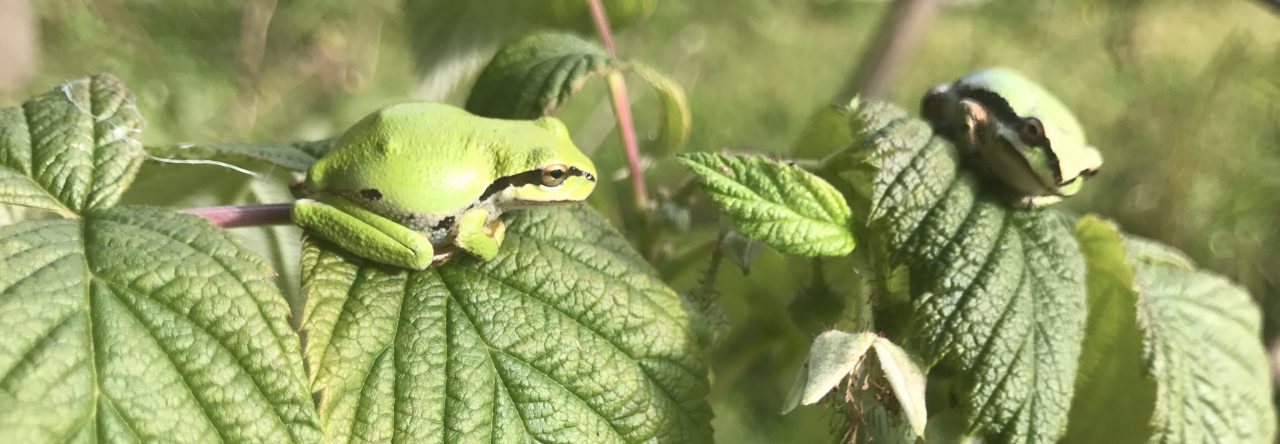
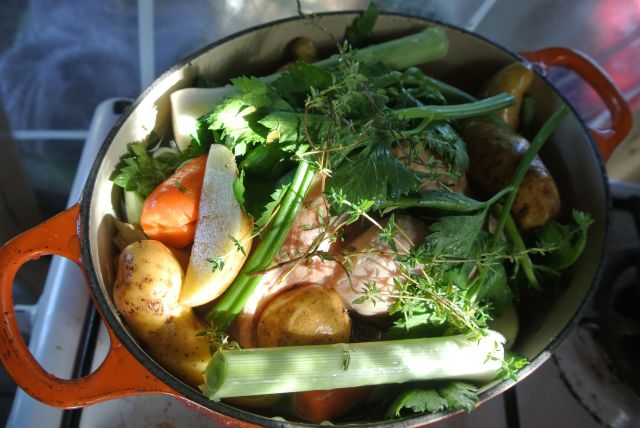
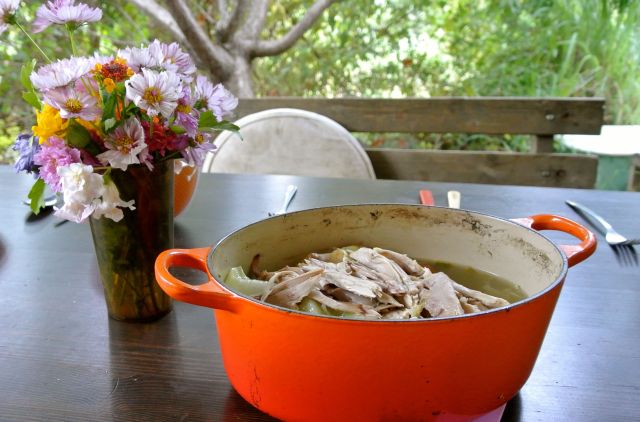
What a lovely post and I especially love your mother’s recipe and the memories attached to it. Keeping poultry for eggs inevitably leads to the point where you need to despatch some of them (especially cockerels) but I think knowing you’ve given them a good and happy life and a quick and kindly exit followed by a delicious recipe is an honour for us poultry keepers and breeders. Thank you for the lovely mention too, I look forward to having a good look round your blog now!
You’re so welcome, and I completely agree. I feel like we’ve closed some sort of gap in what we’re doing now that we’ve accepted that in keeping our birds, we are sometimes faced with killing a few of them.
Such an interesting read, Siobhan, thank you for sharing it with us. We’ve just lost our third chook, so we have new ones on order, but we’re limited with how many we can have here in the suburbs. You’ve made some wonderful dishes with your birds, it’s great that they can grow so happily and then be treated with such grace and dignity on death. x
Thanks so much. Sorry to hear about your chicken – I hope it wasn’t sudden. I just read a blog post about foxes attacking chickens and it was an eye opener. We get birds of prey lurking overhead, but lately they only seem to be interested in Damla, our white cat – we had a noisy confrontation a little while ago.
Something I am going to have to do soon too! And this post was very comforting.. thank you. the postmistress and her mother want to come and help me with a few of the old layers.. the big group will still go to the locker to be returned in nice little white packages.. I am not up to 50 birds at one time.. I made your spaghetti the other night.. FANTASTIC! I am never going back! Thank you for that! c
That spaghetti recipe is a game changer, to be sure. I think your chicken on grass enterprise is so exciting – makes me wish there were somewhere I could send chickens off to as well. 50 chickens would be beyond us too!
My husband kills and plucks our cockerels (and drakes sometimes) while I dress them, which seems a fair division of labour. Your comment about the smell of the chickens is interesting as I’ve noticed that supermarket chickens smell very different from chickens bought from our local farm shop. I wonder if it’s to do with the packaging. Did you hang your chickens for a day or two or dress them straight away?
We dressed them straight away, though I’d like to try hanging them. Perhaps now that the weather is getting cooler. Does it make a great difference?
I don’t know. It’s supposed to help tenderise the meat I think, so I guess if they’re young birds then it won’t make much difference.
I was going to say that you are a brave girl but I thought again. I don’t have chickens, so I’m speaking from a view point of total inexperience. We do what we must, just as you and Ali have done. Great respect to you both for your loving and tender dispatch of the bird(s).
I agree with you entirely. What we did was needed and I think that it is why, in the end, the work wasn’t difficult to do.
I found your post most interesting. Love that you treat the birds with the great respect they deserve in both life and in death. Thank you for sharing.